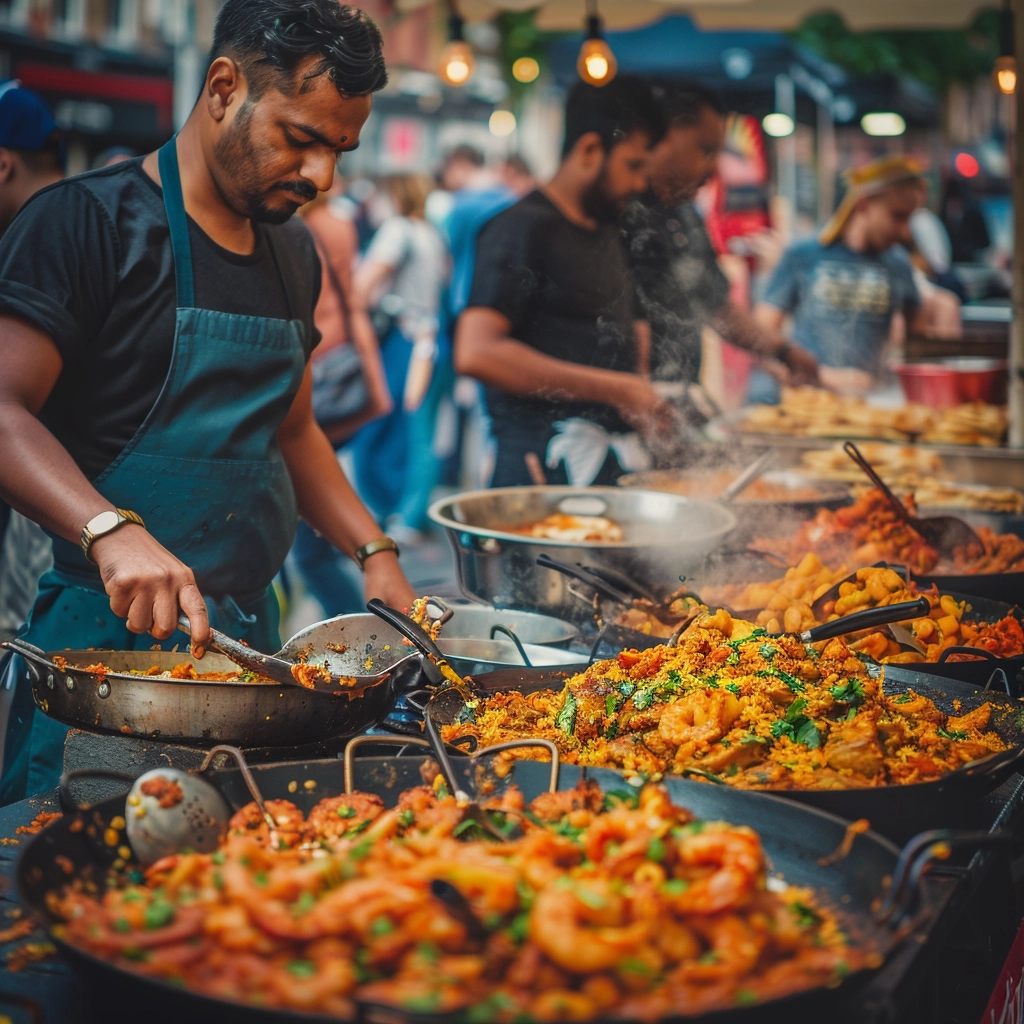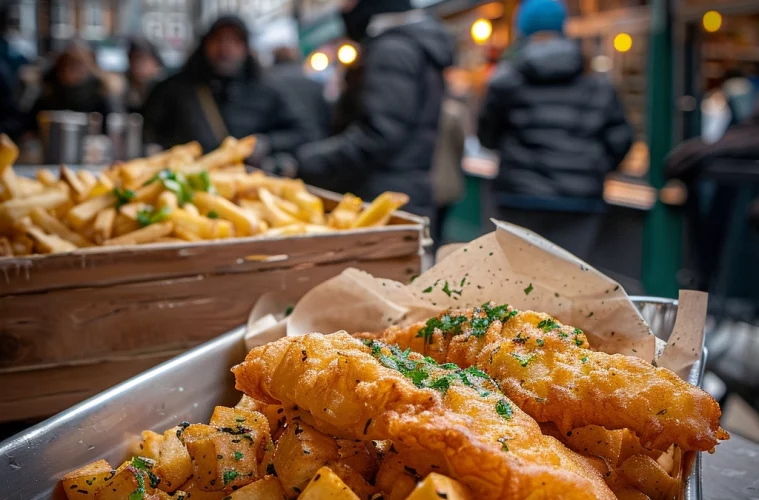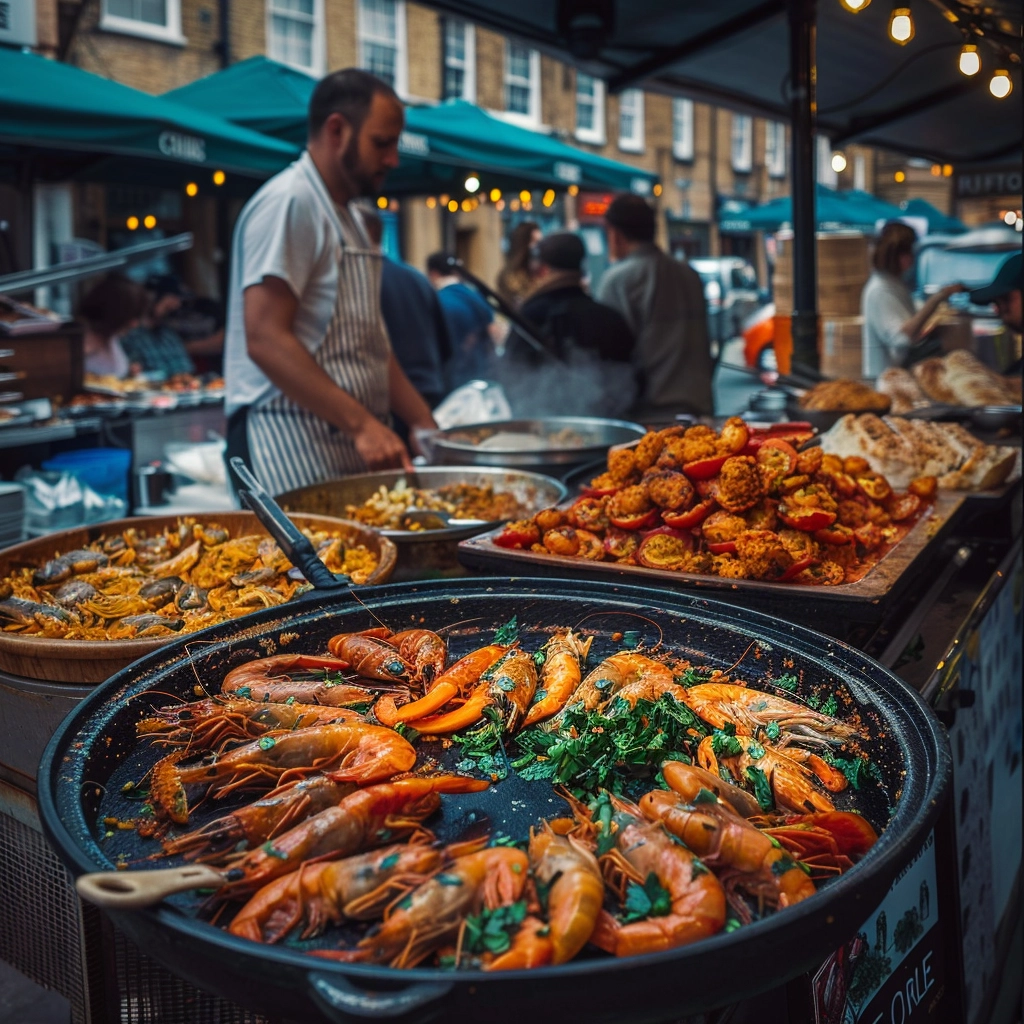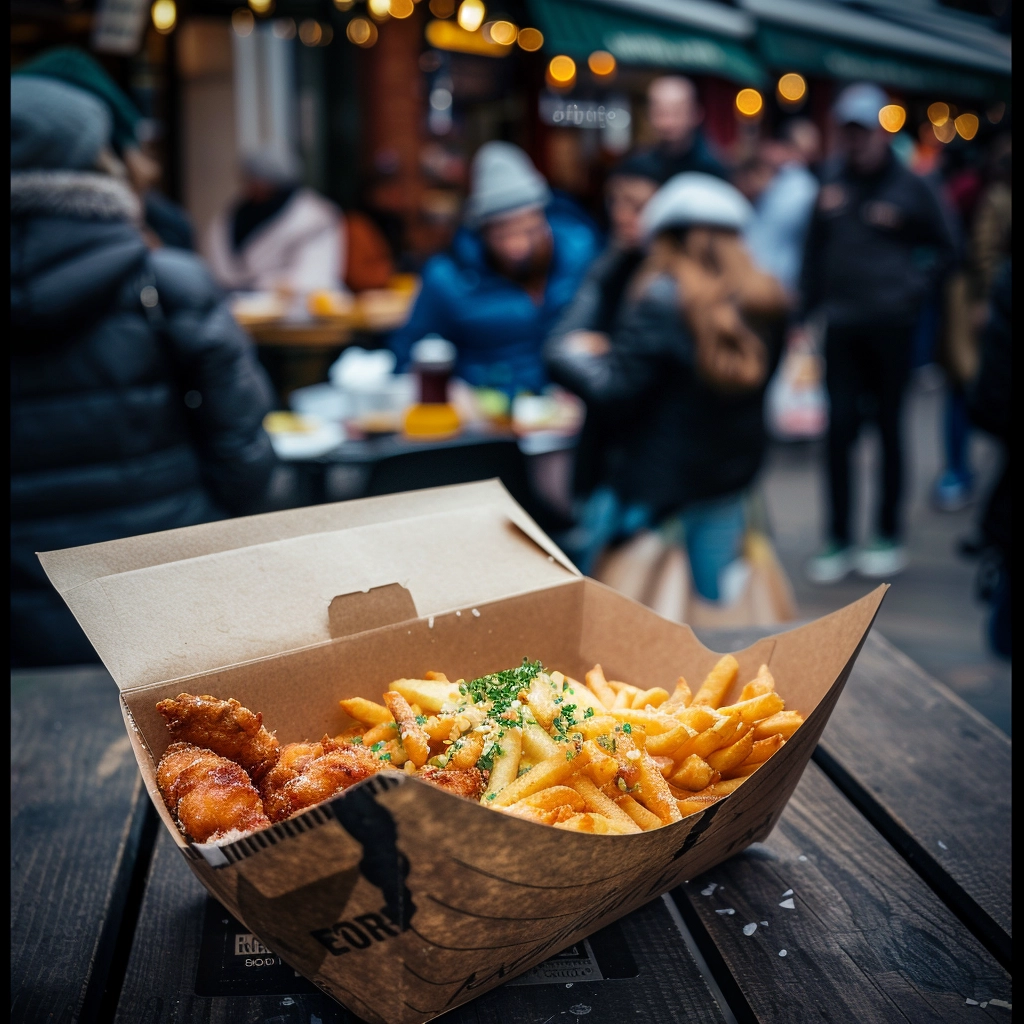In the heart of London, a vibrant and ever-evolving culinary scene unfolds, offering a tapestry of flavours that mirror the city’s dynamic and diverse culture. London’s food festivals and street food markets have become not just a place to eat but a canvas where culinary arts meet community, innovation, and sustainability.
This article delves into the multifaceted world of London’s culinary celebrations, exploring how street food has evolved from traditional offerings to a diverse and gourmet experience, the role of food trucks and markets in catalysing culinary creativity, and how these events serve as communal celebrations that integrate food with entertainment, art, and social transformation.
Street Food Evolution: From Traditional to Diverse and Gourmet
Historically, London’s street food scene was dominated by traditional British fare, but today, it stands as a global gastronomic hub, showcasing a plethora of international cuisines alongside innovative vegan options.
This transformation is a testament to the city’s openness to cultural exchange and its relentless pursuit of culinary excellence. From the humble fish and chips to gourmet fusion dishes served out of high-end food trucks, London’s street food landscape has expanded its palate, offering something for everyone.
Innovation Hubs: Food Trucks and Markets Catalyse Culinary Creativity
Food trucks and markets in London have emerged as pivotal platforms for culinary innovation, allowing chefs and food entrepreneurs to experiment with flavours, ingredients, and presentation without the overheads of a traditional restaurant. These mobile eateries have become incubators for culinary creativity, often leading to the establishment of brick-and-mortar establishments.
Markets such as Borough Market and Street Feast have become destinations in their own right, attracting food enthusiasts from all over the world to taste the latest culinary trends.
Global and Local Flavors: International Cuisines, Vegan Options
The global flavours of London’s street food scene are a reflection of the city’s multicultural population. From Thai to Turkish, Ethiopian to Italian, the streets of London offer a culinary tour of the world.
In addition, the rise of veganism has seen a surge in plant-based offerings, with many stalls dedicated entirely to vegan cuisine, ensuring that the city’s food scene is inclusive and caters to all dietary preferences.
Culinary Arts as Community Engagement: Food Festivals as Communal Celebrations
London’s food festivals are more than just events; they are communal celebrations that bring together people from all walks of life. These festivals serve as a platform for community engagement, where food acts as a universal language that transcends cultural and social barriers.
Events like the Taste of London and London Food Month offer opportunities for communal dining, cooking demonstrations, and interactions with chefs, fostering a sense of community and shared culinary experience.
Integration of Food and Entertainment: Street Food-themed Restaurants, Food Halls
The integration of food and entertainment has seen the emergence of street food-themed restaurants and food halls, where dining is an experience that engages all senses. These venues often feature live music, art installations, and interactive culinary stations, creating a vibrant atmosphere where food and culture intertwine. London’s food halls, such as Mercato Metropolitano and Boxpark, have become cultural hubs, offering a curated selection of street food stalls alongside bars, cinemas, and event spaces.
Sustainability and Eco-Consciousness in Food Sourcing
Sustainability and eco-consciousness have become central themes in London’s street food scene. Many vendors now prioritise locally sourced ingredients, minimal waste, and eco-friendly packaging, reflecting a growing awareness of the environmental impact of food production and consumption. This shift towards sustainability not only supports local farmers and producers but also educates the public on the importance of responsible consumption.
Artistic Expression in Culinary Form: Chefs as Artists
In London’s culinary celebrations, chefs are recognised not just as cooks but as artists. The presentation of food has become an art form, with dishes designed to delight both the palate and the eyes. This artistic expression extends beyond the plate, with food trucks and market stalls often featuring unique and creative designs that reflect the personality of the chef and the culinary concept.
Sensory Experiences: Merging Taste with Auditory and Visual Delights
The culinary celebrations in London offer more than just taste sensations; they engage all senses, providing a holistic sensory experience. Street food markets and festivals are often accompanied by live music, performances, and art installations, creating an immersive environment where food, sound, and visuals merge.
This multisensory approach elevates the dining experience, making each visit to a food festival or market an adventure that tantalises the taste buds while delighting the ears and eyes. For instance, dining under the twinkling lights of a night market, with the sounds of an acoustic set floating in the air, enhances the enjoyment of the food and creates lasting memories.
Cultural and Heritage Celebration through Food
London’s food festivals and street food markets are not just about showcasing culinary innovation; they also serve as platforms for celebrating cultural heritage and traditions through food.
These events provide opportunities for communities to share their culinary traditions with a wider audience, promoting cultural understanding and appreciation. From Chinese New Year celebrations featuring traditional delicacies to Caribbean food festivals that transport attendees to the islands with their vibrant flavours and rhythms, London’s culinary scene is a testament to the city’s rich cultural tapestry.
Social Transformation and Community Focus: Food Festivals Mirror Music Festivals
In many ways, food festivals in London have begun to mirror the ethos of music festivals, with a strong focus on community, social transformation, and inclusivity. Just as music festivals bring together diverse groups of people in celebration of art and culture, food festivals achieve the same through the universal language of food. These events are increasingly taking on a social purpose, supporting local businesses, promoting sustainability, and fostering community spirit.
Food festivals are becoming arenas for social change, where discussions about food security, environmental sustainability, and social equity are brought to the forefront, engaging attendees in broader conversations about the role of food in society, as highlighted in the insightful Vice article.
Looking Forward: The Future of London’s Culinary Celebrations
As we delve into the vibrant world of London’s culinary celebrations, it’s clear that the city’s food festivals and street food markets are more than just venues for eating. They are dynamic spaces where innovation meets tradition, global meets local, and food becomes a medium for artistic expression, community engagement, and social transformation.
In these gatherings, London’s diverse cultural heritage is celebrated, sustainability is prioritised, and culinary arts are elevated to new heights, offering sensory experiences that resonate with both residents and visitors alike. Through these celebrations, London reaffirms its status as a global culinary capital, where the love of food brings people together, fostering a sense of community and shared humanity in the bustling metropolis.
The exploration of London’s food scene, from its markets and trucks, highlighted by Le Cordon Bleu, to its vibrant festivals documented by The Week, illustrates a city at the forefront of culinary innovation and communal celebration. This tapestry of flavours, cultures, and experiences showcases the best of what London has to offer, making it a true culinary destination for food lovers around the world.



